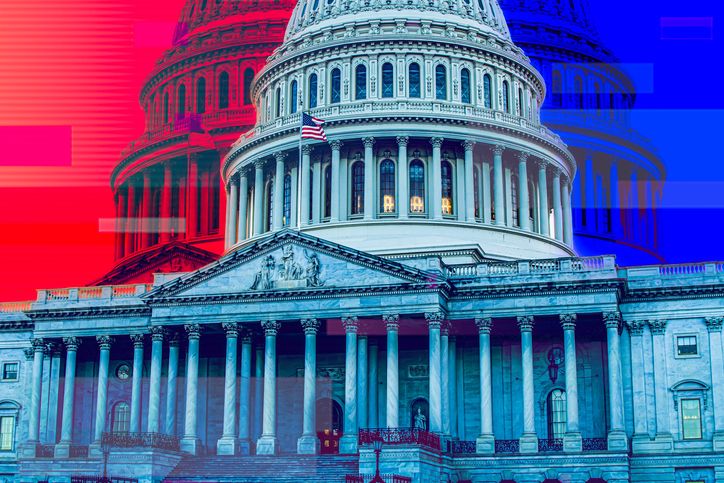
When you’re thinking about a franchise, it’s important to know the laws. Franchise laws can be different in each state. This blog will tell you about the things you need to know, like the FDD, federal rules, and state laws. We’ll also help you understand how to navigate the legal side of franchising.
After reading this blog, you’ll have a better understanding of the franchise laws by state. This will help you make better decisions about your business.
What Is the Franchise Disclosure Document (FDD)?
The Franchise Disclosure Document is a document that outlines the details of a franchise opportunity. It provides potential franchisees with essential information about the franchisor, the business model, financial performance, and the terms of the franchise agreement.
The FDD typically includes the following information:
- Franchisor Information: Details about the franchisor’s background, experience, and financial stability.
- Franchise Fees: A breakdown of the various fees associated with the franchise, including initial franchise fees, royalty fees, and advertising fees.
- Territory and Restrictions: Information about the geographic territory granted to the franchisee and any restrictions or limitations on the operation of the business.
- Training and Support: Details about the training and support provided by the franchisor, including initial training, ongoing support, and marketing assistance.
Before deciding to invest in a franchise, it’s advisable to carefully review the FDD. Pay close attention to the information related to fees, financial performance, territory, and support. Consult with a legal professional if you have any questions or concerns about the terms of the FDD.
Remember, franchise registration states have specific requirements that may affect the FDD. Be aware of these requirements and ensure compliance with local laws.
Federal Franchise Laws
Federal laws provide a foundation for franchise relationships across the United States. The Federal Trade Commission (FTC) is the primary agency responsible for enforcing federal franchise laws.
The FTC’s Franchise Rule is the federal law governing franchises. It requires franchisors to provide potential franchisees with a Franchise Disclosure Document before they can sell a franchise. The FDD contains important information about the franchise, such as fees, financial performance, and the legal relationship between the franchisor and the franchisee.
In addition to the FDD, federal laws also address other aspects of franchise relationships, such as advertising, termination, and renewal. Franchisors need to comply with federal laws to avoid legal issues and protect their businesses.
State Franchise Laws
While federal laws provide a general framework for franchising, many states have their own specific laws that can affect franchise relationships. These state laws can vary widely, so get to know the laws in your specific state.
State franchise laws typically cover three main areas:
- Registration Laws: Some states require franchisors to register their FDD with the state before offering franchises. These states are often referred to as “franchise registration states.”
- Filing Laws: Other states require franchisors to file a copy of the FDD with the state, but they don’t require registration. These states are often referred to as “franchise filing states.”
- Relationship Laws: Many states have laws that regulate the relationship between franchisors and franchisees. These laws may cover topics such as termination, renewal, and dispute resolution.
Research the franchise laws in your state to ensure compliance. You can find information about state franchise laws on the website of your state’s secretary of state or by consulting with a legal professional.
State Franchise Registration Laws
Franchise registration states require franchisors to register their FDD with the state. This means they must submit a copy to the state’s agency for review.
The following states have franchise registration laws:
- California
- Hawaii
- Illinois
- Indiana
- Maryland
- Michigan
- Minnesota
- New York
- North Dakota
- Rhode Island
- South Dakota
- Virginia
- Washington
- Wisconsin
The Registration Process
The registration process typically involves submitting a completed FDD along with any required fees to the state’s designated agency. The agency will review the FDD to ensure that it complies with state laws and regulations. Once the FDD is approved, the franchisor can begin offering franchises in that state.
Benefits of Registration
Registering your FDD with a franchise registration state can have several benefits. It can help to establish credibility and trust with potential franchisees. It can also help to protect the franchisor from legal issues that may arise in connection with the franchise offering.
Non-Registration States
Some states do not have franchise registration laws. This means that franchisors operating in these states don’t need to register their FDD with the state.
The following are non-registration states:
- Alabama
- Alaska
- Arizona
- Arkansas
- Colorado
- Delaware
- District of Columbia
- Idaho
- Iowa
- Kansas
- Massachusetts
- Mississippi
- Missouri
- Montana
- Nevada
- New Hampshire
- New Jersey
- New Mexico
- Ohio
- Oklahoma
- Oregon
- Pennsylvania
- Tennessee
- Vermont
- Virginia
- West Virginia
- Wyoming
Even though these states don’t require registration, franchisors still need to follow general business laws. They must also provide potential franchisees with a complete FDD. Some states may have specific regulations for franchises. Local ordinances can also apply.
Build a Strong Franchise Relationship
Understanding franchise laws by state is beneficial for both franchisors and franchisees. These laws provide a framework for the relationship between the two parties and help to protect their rights. By knowing the key areas of franchise law, you can ensure that your franchise business complies and avoids potential legal issues.


